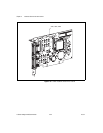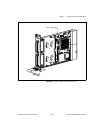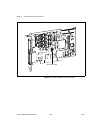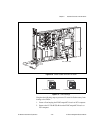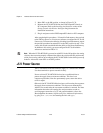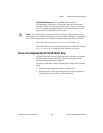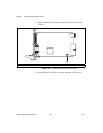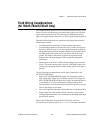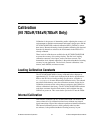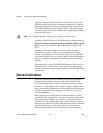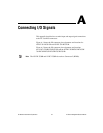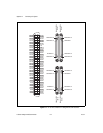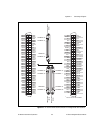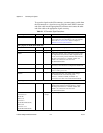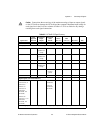
© National Instruments Corporation 3-1 R Series Intelligent DAQ User Manual
3
Calibration
(NI 783x R/784x R/785x ROnly)
Calibration is the process of determining and/or adjusting the accuracy of
an instrument to minimize measurement and output voltage errors. On the
NI 783xR/784xR/785xR, onboard calibration DACs (CalDACs) correct
these errors. Because the analog circuitry handles calibration, the data read
from the AI channels or written to the AO channels in the FPGA VI is
already calibrated.
Three levels of calibration are available for the NI 783xR/784xR/785xR
to ensure the accuracy of its analog circuitry. The first level, loading
calibration constants, is the fastest, easiest, and least accurate. The
intermediate level, internal calibration, is the preferred method of assuring
accuracy in your application. The last level, external calibration, is the
slowest, most difficult, and most accurate.
Loading Calibration Constants
The NI 783xR/784xR/785xR is factory calibrated before shipment at
approximately 25 °C to the levels indicated in the device specifications.
Refer to the NI R Series Intelligent DAQ Specifications, available at
ni.com/manuals, for more information calibration levels. The onboard
nonvolatile flash memory stores the calibration constants for the device.
Calibration constants are the values that were written to the CalDACs to
achieve calibration in the factory. The NI 783xR/784xR/785xR hardware
reads these constants from the flash memory and loads them into the
CalDACs at power-on. This occurs before you load a VI into the FPGA.
Internal Calibration
With internal calibration, the NI 783xR/784xR/785xR can measure and
correct almost all of its calibration-related errors without any external
signal connections. NI provides software to perform an internal calibration.
This internal calibration process, which generally takes less than
two minutes, is the preferred method of assuring accuracy in your



